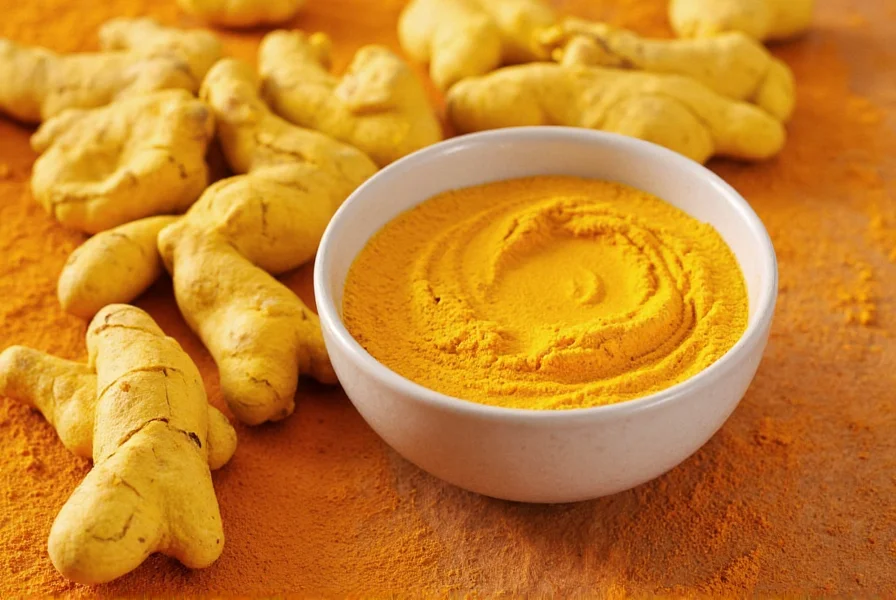Turmeric tea has gained significant attention in both traditional medicine and modern scientific research for its remarkable properties. This golden-hued beverage, made from the Curcuma longa plant's rhizome, contains curcuminoids—primarily curcumin—which account for most of its therapeutic potential. Understanding turmeric tea properties requires examining both the biochemical components and their physiological effects.
The Science Behind Turmeric Tea Properties
Curcumin constitutes about 2-8% of turmeric by weight and serves as the primary bioactive compound responsible for turmeric tea's distinctive properties. This polyphenol demonstrates powerful antioxidant capabilities by neutralizing free radicals and boosting the body's own antioxidant enzymes. Research published in Advances in Experimental Medicine and Biology confirms curcumin's ability to modulate multiple molecular targets involved in inflammation pathways.
However, curcumin has notoriously low bioavailability when consumed alone. This explains why traditional preparations of turmeric tea often include black pepper (containing piperine) and healthy fats—combinations that can increase curcumin absorption by up to 2,000% according to studies in Planta Medica.

Key Health-Related Properties of Turmeric Tea
| Property | Scientific Basis | Practical Implication |
|---|---|---|
| Anti-inflammatory | Curcumin inhibits NF-kB pathway | May support joint comfort and reduce exercise-induced inflammation |
| Antioxidant | Boosts glutathione and superoxide dismutase | Helps combat oxidative stress from environmental factors |
| Digestive support | Stimulates bile production | May improve fat digestion and reduce occasional bloating |
| Metabolic support | Modulates glucose metabolism pathways | Preliminary research suggests potential blood sugar regulation benefits |
Maximizing Turmeric Tea Benefits Through Preparation
The properties of turmeric tea significantly depend on preparation methods. To optimize curcumin extraction and absorption:
- Heat activation: Simmer turmeric in water for 10-15 minutes to increase solubility of curcuminoids
- Fat incorporation: Add coconut oil or ghee (traditional in Ayurvedic preparations) to enhance absorption
- Piperine pairing: Include freshly ground black pepper (just 1/20th teaspoon) to dramatically improve bioavailability
- Avoid alkaline conditions: Don't add baking soda, which degrades curcumin
Research in the Journal of Medicinal Food demonstrates that these preparation techniques can increase the measurable curcumin content in tea by 300-400% compared to simple steeping methods.
Important Considerations and Limitations
While turmeric tea properties show promise, several important considerations exist:
Curcumin's effects are generally modest compared to pharmaceutical interventions. A comprehensive review in Nutrients journal concluded that while turmeric tea may provide supportive benefits for inflammatory conditions, it shouldn't replace conventional medical treatments for serious health conditions.
Certain populations should exercise caution:
- Individuals taking blood thinners (curcumin may enhance anticoagulant effects)
- Those with gallbladder issues (turmeric may stimulate bile production)
- Pregnant women (high doses may affect uterine contractions)
The European Food Safety Authority considers up to 3 mg of curcumin per kilogram of body weight daily as safe for most adults. A typical cup of properly prepared turmeric tea contains approximately 20-50 mg of curcumin.

Current Research Status on Turmeric Tea Properties
Scientific understanding of turmeric tea properties continues evolving. While thousands of laboratory and animal studies demonstrate promising mechanisms, human clinical trials remain more limited. A 2022 meta-analysis in Complementary Therapies in Medicine reviewed 18 human trials and found moderate evidence supporting turmeric's anti-inflammatory effects, particularly for osteoarthritis management.
Researchers note that many studies use concentrated curcumin supplements rather than tea preparations, creating a gap in specific evidence for beverage consumption. The National Center for Complementary and Integrative Health states that while preliminary research is encouraging, more rigorous human studies are needed to confirm many proposed benefits.
Practical Integration into Daily Routine
For those interested in exploring turmeric tea properties, consider these evidence-based approaches:
- Start with 1-2 cups daily, preferably with a meal containing healthy fats
- Combine with complementary ingredients like ginger (for digestion) or cinnamon (for metabolic support)
- Use fresh turmeric root when possible—studies show higher curcuminoid content than powdered forms
- Be consistent—many benefits require regular consumption over weeks or months
Remember that turmeric tea should complement, not replace, a balanced diet and healthy lifestyle. Its properties work best as part of an overall wellness approach rather than as a standalone solution.
Conclusion
Turmeric tea properties offer a compelling combination of traditional wisdom and emerging scientific validation. The anti-inflammatory and antioxidant effects of curcumin provide legitimate health-supportive potential, though realistic expectations are important. By understanding both the capabilities and limitations of turmeric tea, consumers can make informed decisions about incorporating this ancient beverage into their modern wellness routines. As research continues to evolve, we may discover additional dimensions of turmeric tea's remarkable properties.
What are the main health properties of turmeric tea?
Turmeric tea's primary properties include anti-inflammatory effects through NF-kB pathway inhibition, potent antioxidant activity that boosts the body's natural defense systems, digestive support by stimulating bile production, and potential metabolic benefits. These properties stem mainly from curcumin, the active compound in turmeric, though optimal preparation with black pepper and healthy fats significantly enhances absorption and effectiveness.
How much turmeric tea should I drink daily for health benefits?
Most research suggests 1-2 cups of properly prepared turmeric tea daily provides sufficient curcumin for potential health benefits. Each cup should contain approximately 1-2 grams of turmeric root or powder. The European Food Safety Authority considers up to 3 mg of curcumin per kilogram of body weight daily as safe for most adults, which typically translates to 1-3 cups of well-prepared turmeric tea. Consistency matters more than quantity—regular daily consumption over weeks yields better results than occasional large doses.
Can turmeric tea interact with medications?
Yes, turmeric tea may interact with certain medications. It can enhance the effects of blood thinners like warfarin due to its mild anticoagulant properties. Turmeric may also affect diabetes medications by potentially lowering blood sugar levels. Those taking proton pump inhibitors for acid reflux should consult their healthcare provider, as turmeric may increase stomach acid production. Always discuss turmeric tea consumption with your healthcare provider if you're taking prescription medications, especially blood thinners, diabetes drugs, or medications metabolized by the liver.
How does preparation method affect turmeric tea properties?
Preparation significantly impacts turmeric tea properties. Simmering turmeric in water for 10-15 minutes increases curcumin solubility compared to simple steeping. Adding black pepper (containing piperine) can boost curcumin absorption by up to 2,000%. Including healthy fats like coconut oil or ghee further enhances bioavailability. Avoid adding alkaline substances like baking soda, which degrade curcumin. Fresh turmeric root generally provides higher curcuminoid content than powdered forms. These preparation techniques can increase the measurable curcumin content in tea by 300-400% according to research in the Journal of Medicinal Food.
What scientific evidence supports turmeric tea properties?
Numerous laboratory and animal studies demonstrate turmeric's anti-inflammatory and antioxidant mechanisms. Human research is more limited but growing— a 2022 meta-analysis in Complementary Therapies in Medicine reviewed 18 human trials and found moderate evidence supporting turmeric's benefits for osteoarthritis management. The National Center for Complementary and Integrative Health acknowledges promising preliminary research but notes that more rigorous human studies are needed. Most high-quality evidence comes from concentrated curcumin supplements rather than tea preparations specifically, creating a research gap for beverage consumption effects.











 浙公网安备
33010002000092号
浙公网安备
33010002000092号 浙B2-20120091-4
浙B2-20120091-4